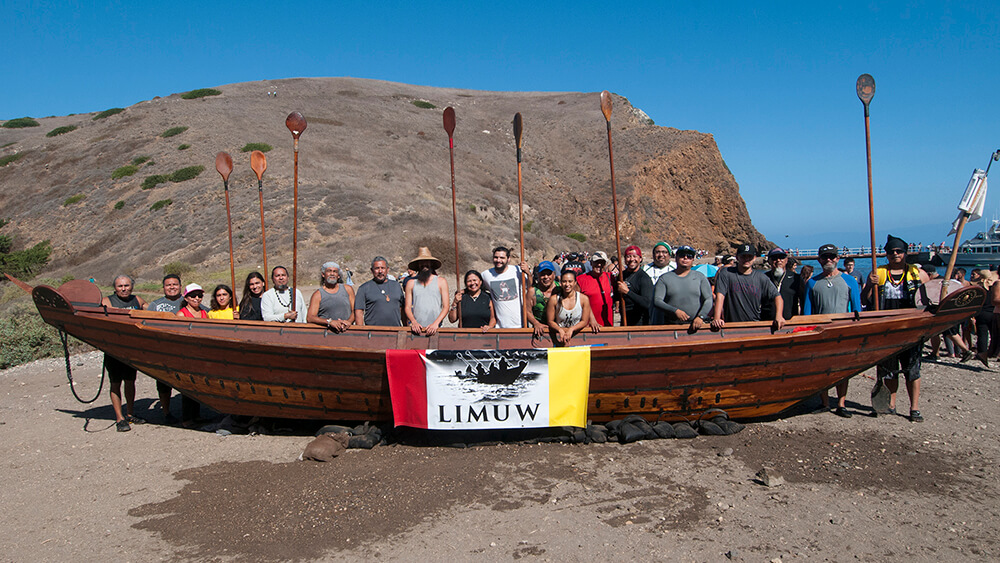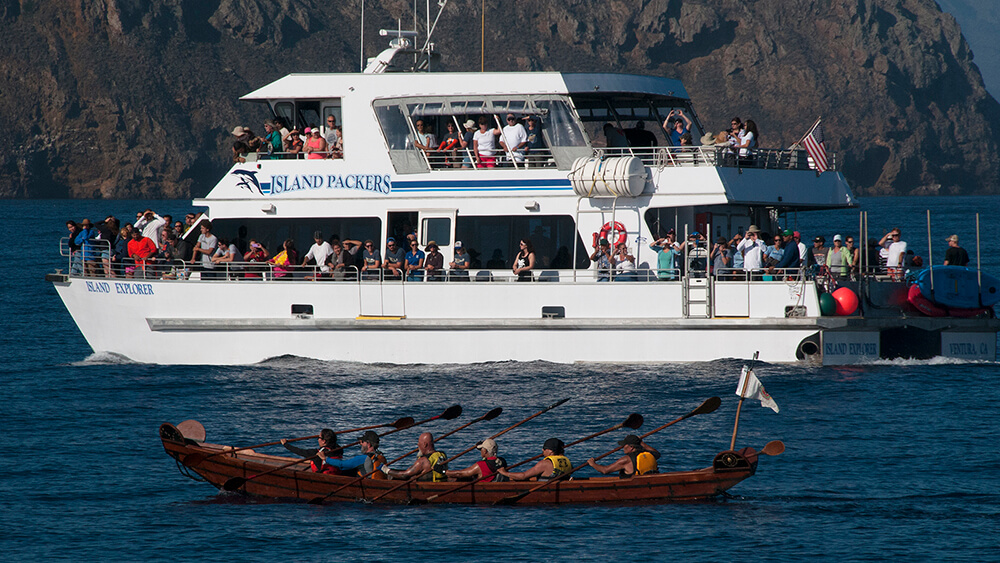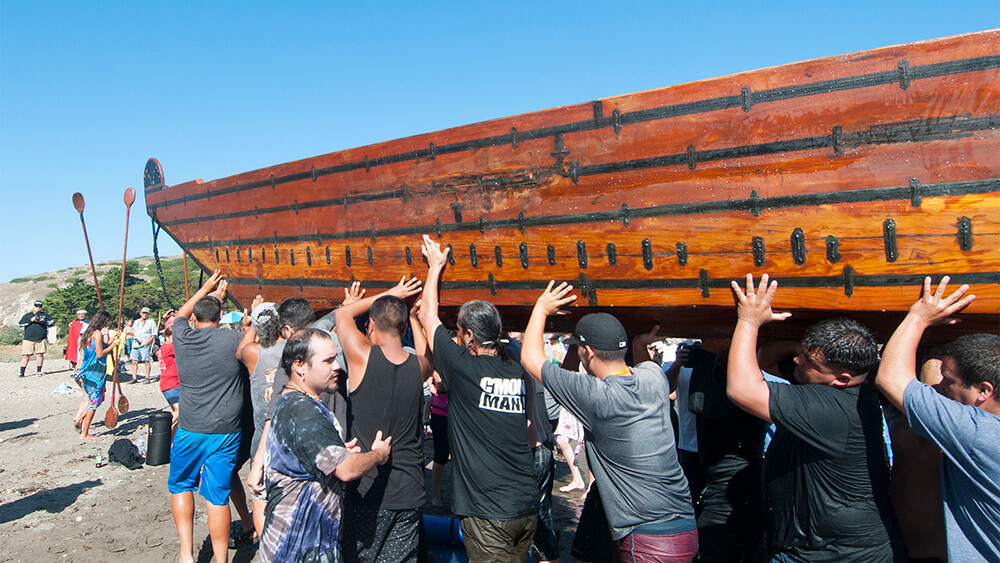Island Homeland: The Village of Swaxil
by Georgiana Valoyce Sanchez

Ancient stories tell of a time when Chumash People lived only on the northern Channel Islands off the coast of what we now call California. The islands were alive with Chumash People, working, laughing, speaking in the language Hutash and Kakunupmawa had given them. In the stories, Coyote, 'Ashk'a,' and Lizard, 'Onok'ok', tell of island hillsides covered in golden poppies, island poppies found no place else on earth, flowers so beautiful that just the story of their beauty brought healing to the people. 'Ashk'a' and 'Onok'ok' said there were so many poppies that on a clear day, from the mainland, the big island of Limuw, (Santa Cruz Island), shimmered golden in the sun.
On the weekend of September 11, 2004, Chumash families aboard Islander crossed the Santa Barbara Channel toward Limuw, their ancient island homeland. As they drew near the island coast and pulled alongside the rugged Scorpion Rocks, colonies of pelicans and seabirds scrutinized them. Swaxil, the largest village of the northern Channel Islands was just around the bend. Part of this ancient village site is now Scorpion Campground.

Chumash families, arriving in three separate crossings, set up camp at Scorpion Campground to await the arrival of 'Elye'wun, the traditional plank canoe of the Chumash. This was the second time, since 1834, that Chumash paddlers would make the historic crossing from the mainland to Limuw. While the families waited for 'Elye'wun, the Barbareno Chumash Council hosted a Symposium on Sacred Sites. Contrary to many sacred site gatherings in the past, this symposium took place at a profoundly significant village site, adding to the historical and cultural dynamic of the event.
The symposium brought together some extraordinary people, grassroots leaders like Rhonda and Rebecca Robles, daughters of the late Ajachemem Elder, Lillian Robles, and nationally known dignitaries, such as Billy Frank, Chairman of the Nisqually Nation of Washington state and recipient of the Albert Schweitzer Humanitarian Award. Good words were spoken, stories were told and songs were sung. Dinner was a tribute to Hutash, the spirit of the Earth, a true celebration of life. The gathering at Limuw reaffirmed and celebrated the relationship of all people to our Mother Earth and reminded all gathered of the sacred places on this earth and of our responsibilities as caretakers of this land.

From a hilltop above Scorpion Campground, with the wind blowing through the grasses and the sun setting to the west, the sky streaked lavender and gold, the mainland sleepy and purple across the channel, Elders gazed in hushed reverence. Like the Elders on the hilltop, island oak and ironwood, are being replanted throughout the islands. The unique golden poppies of the islands have never left, blooming here and there, wherever they could, a reminder of the resiliency of the Chumash People. Limuw, ancient island homeland of the Chumash, seemed to embrace the Elders that day, reminding us of the sacredness of all life and of our responsibilities as human beings, especially in this time of suffering and war, to live authentic lives of respect and harmony.

